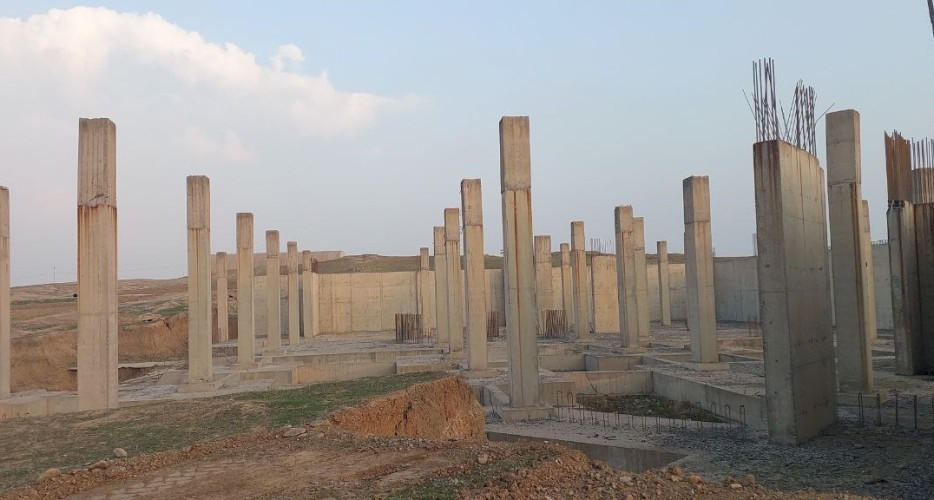
Peregraf- Ammar Aziz
Duhok governorate has grown substantially since the foundation stones of two uncompleted public hospitals were laid more than a decade ago, leaving the population underserved.
In 2012, the Kurdistan Regional Government (KRG) held a ceremony to launch construction of a 300-bed hospital in Duhok city. The following year, it broke ground on a 100-bed hospital in Bardarash, a town about 65 kilometers (40 miles) to the southeast that is administratively part of the governorate.
Construction has not been completed at either site and there is no sense of when medical operations could begin.
“We are waiting for the Kurdistan Regional Government's budget to arrive to complete the two hospitals. If the budget arrives from Baghdad without any problems, many of our problems will be solved," Jamila Mohammed, a member of the Duhok Provincial Council, told Peregraf, referring to money allocated to the KRG in the recently passed federal budget.
The hospital is Bardarash had an original budget of 40 billion Iraqi dinars ($30.5 million), but is only about 10 percent finished. Construction on the facility in Duhok city is only about 20 percent done.
This delay exceeds the nine years that it took to build the 400-bed Shar Hospital in Sulaimaniyah city, which was often used as an example of official corruption and incompetence.
“The health sector in Bardarash has been in crisis for 31 years,” Shahab Botani, a journalist and activist, told Peregraf.
“During the Ba'ath regime, there was a health center that served Bardarash and there were no problems, But, after the uprising, the sector has never been a source of happiness for the people,” he added.
Afrasiab Musa, director general of health in Duhok, told Peregraf that the two facilities were “definitely needed” because of the valuable medical services that they will provide to a growing population.
When the foundation stone was laid for the hospital in Duhok city in 2012, Duhok governorate has about 1.158 million people. This has grown to about 1.396 today.
Mohammed blamed the Kurdistan Region’s financial crisis, the budget pressures caused by the war against Islamic State (ISIS), and Baghdad’s decision to cut off budget transfers for why the hospitals have not been completed.
Since 2014, the KRG has abandoned more than 3,000 proposed or started projects, leaving more than $1 billion initially owed to contractors.
Omid Naqshbandi, a member of the Kurdistan Contractors Union, told Peregraf that about 60 percent of the money has been repaid.
He argued that the government could stimulate the broader economy by restarting some of the projects, which would bring services and jobs.
The authorities in Bardarash hope that they hope to be able to finish the district’s hospital by 2026, the end of the three-year budget passed by the federal government.
Khadr Salih Khadr, director of health in Bardarash district, told Peregraf that opening the facility “is very important for us,” but that “requires a good budget and we are trying to provide the money.”
These problems are focused on the public health sector, which provide many services free of charge or at discounted rates.Without access to these services, many turn to expensive private health care.
During the same period that work stalled on the Duhok and Bardarash public hospitals, at least ten large private hospitals were built in the governorate. Fifteen public facilities were completed in other places, but many areas like Bardarash remain underserved.
Botani said the situation in the health sector "completely worries citizens,” but the government "has neither eyes nor ears” and, therefore, does not respond.
“The existing two health centers in [Bardarash] do not have specialists. Even for the mildest ailments, patients have to be sent to Akre or central Duhok on the grounds that the centershave nothing,” he added.
While Akre, which is a 45-minute drive from Bardarash, is able to benefit from its emergency hospital, health care in the town still struggles to cope with the needs of its population.
If the federal budget comes through, Musa said that work will resume on the two hospitals, but admitted that “there is no deadline to work on these two projects.”
“We will not give up the two hospitals completely. We will continue to follow up and demand the completion of both projects.”